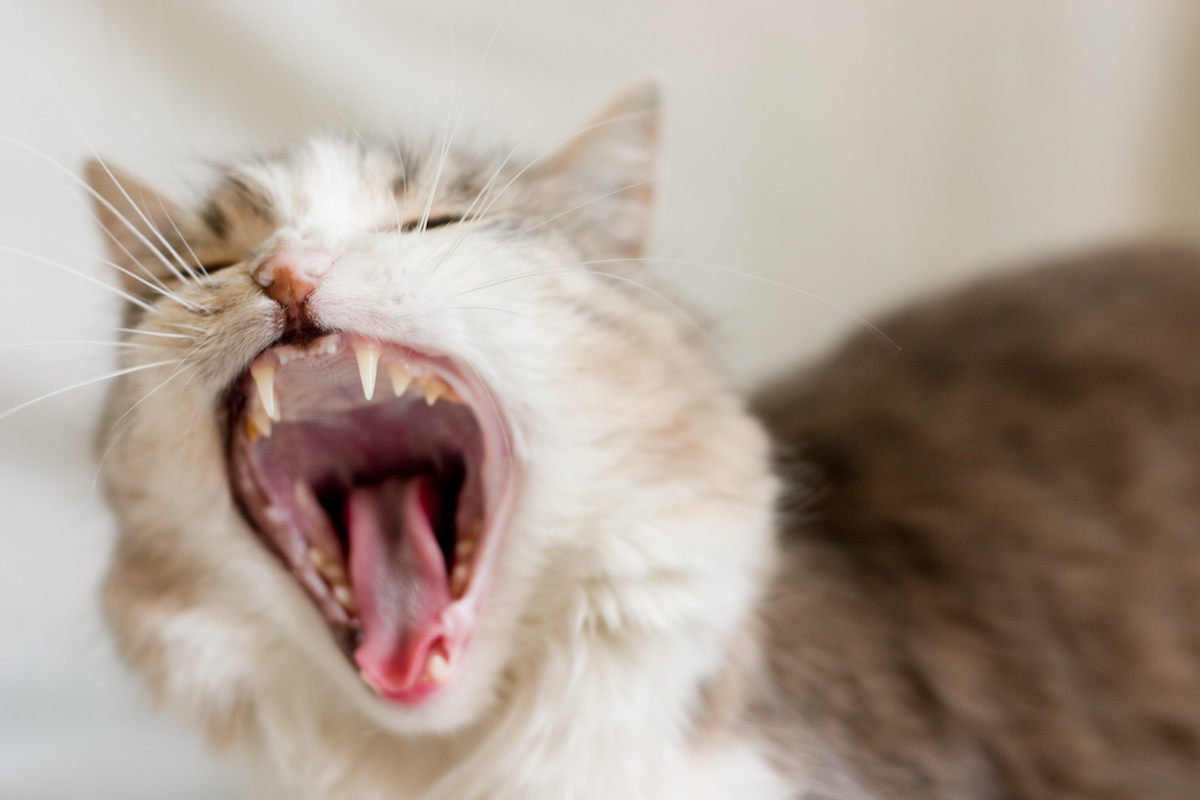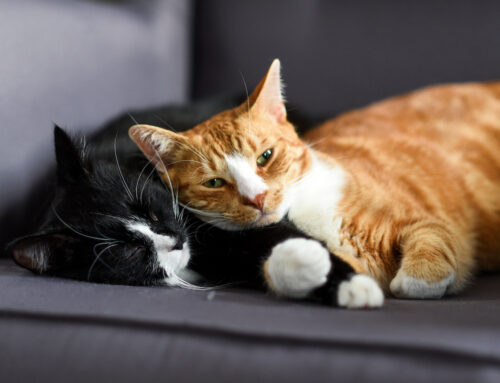It’s a part of every cat parent’s life: You’re sleeping deeply in the middle of the night when suddenly, you wake up to an earsplitting shriek.
It’s not a bad dream — it’s just your cat. So, why does your cat howl at night? Some cats are chatty because it’s a breed characteristic (The Russian blue likes to carry on constant conversations.) but most kitties do it for specific reasons.
Here we go over what it means and if you should be worried.
Vocalization is a Normal Cat Thing
Vocalization is just one of the ways in which cats communicate with their human families (and sometimes with each other).
Why do cats meow? The reasons change as they grow from kittens into cats. Kittens meow to their mothers when they’re hungry, cold, or scared. But once cats get older, they use other vocalizations — such as yowling, hissing, and growling — to communicate with each other. Meowing is reserved for their communications with people.
Oriental breeds, especially Siamese cats, are known as great “talkers,” so anyone who doesn’t like meowing probably should steer clear of these breeds. And some cats just seem to like to hear their own voices, while others seem to want to carry on a conversation with their owners. If your cat is talking a little more than you’d like, try to figure out the cause first.
Much of cat language is nonverbal, making vocalizing an effective maneuver for getting someone’s attention. It’s possible to ignore (sort of) a cat pawing at your keyboard while you work, but a cat howling at night? That will make you take notice.
During the day, you’re awake and interacting with them, so there’s no need for a screech. Cats are crepuscular creatures, however, meaning they are most active at dusk and dawn.
Your kitty is programmed to kick into high gear right at the crack of dawn when it may still feel like the middle of the night. This burst of energy can contribute to the howling.
Aging Can Lead to More Howls
“As cats age,” explains Animal Planet, “they want to be around their humans as much as possible. Being separated from their family at night may distress or confuse them.”
Some age-related issues like diminishing hearing and vision can cause increased anxiety and yowl-inducing frustration. Your kitty’s sleep cycle also can be affected by neurological conditions like cognitive dysfunction, which can occur in cats older than 10 years old.
Just like in humans, an elderly cat’s sleep-wake cycle may change and cause her to sleep during the day and wander at night. If your older cat exhibits unusual behavior like staring blankly at walls or refusing to eat or drink, take her to the veterinarian as soon as possible.
Is Your Cat In Heat?
If your cat isn’t spayed or neutered, then you’re going to hear a lot more noise. Females yowl when in heat and males yowl when they smell a female in heat. Both can be maddening to live with. Getting your pet spayed or neutered will prevent this.
Indoor cats can come into heat year-round. Spaying your cat is the best way to reduce her excessive meowing during her cycle. Spaying also helps to reduce her risk of illnesses like uterine infections and certain types of cancer.
How to Make The Howling Stop
There are a few ways to curb your cat’s nighttime antics.
Actively engaging in playful activity during the day makes it easier for them to sleep at night. It’s easier said than done, but try to ignore your kitty’s demands for nightly snacks or cuddles. Giving in reinforces the behavior and will end up keeping you up at all hours of the night.
Despite what some people think, cats don’t like being alone a lot. Cats often meow to initiate play, petting, or to get you to talk to them. If you want to cut down on attention-seeking meows, stop responding when it happens. Only give them attention when they are quiet. If they start to meow again, look or walk away.
Spend quality time each day with them, playing, grooming, and talking to them. A tired pet is a quieter pet.
Wait until they are quiet to put down food, and don’t give them treats when they meow. If this doesn’t work, get an automatic feeder that opens at set times. Now kitty will meow at the feeder and not you.
Many cats meow when their people come home, or even when they just meet them in the house. They are lonely. If your pet spends too many hours a day alone, think about getting a pet sitter to enrich your pet’s life. Put a bird feeder outside a window they can watch. Leave foraging toys out with food inside. Get them a kitty condo and rotate different toys that you leave out for play.
See The Vet If You’re Worried
If your cat still won’t stop the howling after trying some of the options above, it’s best to see your vet.
There are some illnesses that are indicated with vocalization so it’s always better to be safe than sorry.






